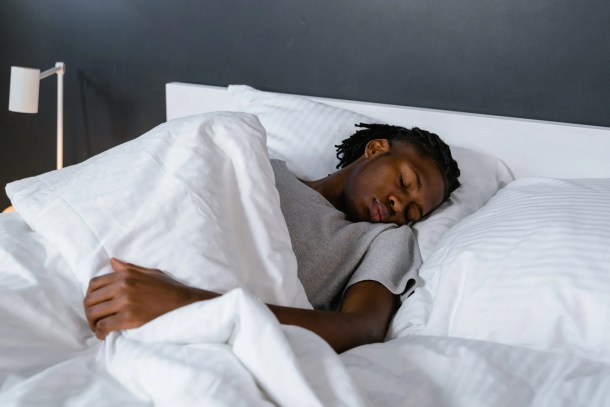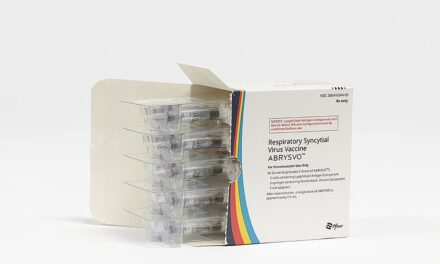By Alexa Spencer | Word In Black

(WIB) – Imagine trying to catch some z’s but your breathing stops and starts unpredictably, jolting you awake. This disrupts sleep and can spiral into high blood pressure, heart disease, and ultimately, death.
Obstructive sleep apnea is common in the community but largely underdiagnosed. Over the last 20 years, Black men have borne the brunt of this, with their death rates from obstructive sleep apnea continuing to rise, while others, including white people and Black women, have flattened.
And now research shows sleep apnea might raise the long COVID stakes for Black folks.
Researchers recently discovered that the condition makes people more vulnerable to long COVID, meaning that Black people — who are more likely than white people to have the sleeping disorder — face an even greater risk of living with the effects of COVID-19 long-term.
The study, published in the a recent edition of the journal SLEEP, found that adults with sleep apnea — who are also infected with COVID — may be up to 75% more likely to develop long COVID than those who don’t have it.
The findings were discovered as part of the National Institute for Health’s Researching COVID to Enhance Recovery (RECOVER) Initiative. And the data shows that folks with sleep apnea who contracted COVID-19 were at higher risk for hospitalization during the pandemic. Now, researchers are saying they’re more likely to carry the virus’ symptoms for long periods of time.
Long COVID Unpacked
Long COVID is no walk in the park. Think chronic pain, brain fog, shortness of breath, chest pain, or debilitating fatigue bothering you for weeks, months, or even years after your COVID-19 infection has cleared.
The post-infection period when a person might experience one or more of these long COVID symptoms ranges from weeks and months to years.
According to the CDC, symptoms must last at least four weeks to be considered long COVID, whereas the World Health Organization requires a minimum of three months.
Saving Lives
Close care for individuals with the dual sleep apnea-COVID condition might save lives. Between January 2020 and June 2022, over 3,500 United States residents died from long COVID-related illnesses, according to an analysis by the Centers for Disease Control and Prevention.
The CDC found that Black people accounted for the second-highest percentage of long COVID-related deaths at 10%. The majority of deaths — 78% — were reportedly among white people, who represent over three-fourths of the U.S. population.
“We still have a lot to learn about the long-term effects of this virus, but this study could inform clinical care by identifying patients who may benefit from closer monitoring,” Marishka K. Brown, director of the National Center on Sleep Disorders Research at the National Heart, Lung, and Blood Institute (NHLBI), said in a statement.
Whatever the time period, the point remains: sleep apnea is a risk factor for infected people, according to senior study author Lorna E. Thorpe, MPH, a professor of population health, the director of the Division of Epidemiology.
“A strength of the work is that the link between sleep apnea and long COVID persisted regardless of how the researchers in our study defined long COVID or gathered data.”
Support Our Work
Independent journalism needs YOUR support to survive and thrive. Help us achieve our mission of creating a more informed world by making a one-time or recurring donation today.




